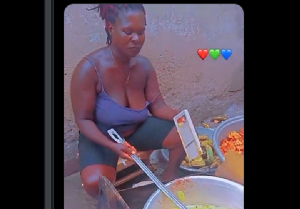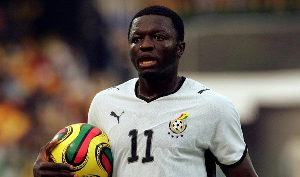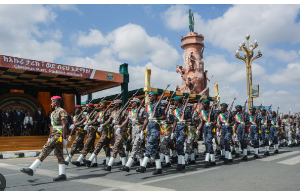There are values Africans hold on to quite strongly, that people who are considered to be of "Advanced Civilisation" rarely concern themselves with. One of which, is the slightly weird nature of our indigenous greeting culture.
Greeting is a traditional African trait. In a stiff cultural environment like the African society where one's character is constantly being examined, greeting can brighten one's chances of making a good first impression. To the elderly, greeting plays a role in evaluating one's level of morals. It also creates the opportunity of discerning in a few seconds, the quality of a child's parental upbringing. In fact, greeting is non-negotiable in Africa!
Having pictured the great value attached to greeting, in what way do Africans seem to go overboard with it?
Occassionaly, I get troubled with the feeling that the greeting culture in many parts of Africa (especially in reverence to elders and those we hold in high esteem or consider superior), still suffers the rub-off effect of colonialism.
Although, culture varies across the continent, we're unified in a way as regards our approach to elders, religious leaders and other prominent individuals. Greeting an elderly or influential person in Africa, is more on the side of showing honor than exchanging pleasantries. As a result, it isn't complete without bowing, kneeling, squatting, prostrating, receiving a handshake with both hands, etc. (depending on the varying cultures).
I get terrified when I happen to watch the exchange of pleasantries when an African football team engages a foreign opponent during the first game or finals of an international tournament. As is customary, the president of the world football's governing body (FIFA) is obliged to share a warm handshake with the players either before kick-off (if it were the first game of the tournament), or at the end of a final when the players take a walk to collect their medals. While the foreigners receive the handshake with one hand, some of the African players proceed to receive theirs with both hands and sometimes, even compliment it with a bow. Wow!
In some African traditions (notable among the Zambians), men are not allowed to shake hands with their mother-in-laws. The women likewise, avoid a handshake from their father-in-laws. If the elders are seated, one must kneel with at least one knee touching the ground when shaking hands. If at a distance, one may touch the chest and bow slightly.
"I have on several occasions in the middle of Lusaka, seen men kneeling across the road from their mother-in-laws, also kneeling and clapping, asking each other how the family is doing while avoiding eye contact" said Ziggi, a Zambian friend of mine.
In Nigeria (famous with the Yoruba tribe), some males still prostrate on the bare floor as an acceptable way of howing respect to elders. A "well-behaved" male child, is one who greets an elder by laying on the ground until permitted to get up. Of course, getting up too soon ridicules your home training!
Over the years, this cultural ideology has transitioned into religion. To certain people, kneeling before a religious leader who's presumably "standing in the presence of God" seem to be the quickest remedy for answered prayers. Hence, some people tend to relate casually with God, but revere preachers. Some other Christian, may prefer to say a quick tacky prayer in bed in hopes of kneeling before a preacher for "special prayers".
These are a few of the many absurd practices we've absorbed into our daily lifestyle as demanded by our indigenous greeting cultures. These practices may have served whatever purpose they were established for at an earlier time, but I think they've outlived their usefulness! Greeting is intended to be an exchange of polite friendly gestures, and not a pseudo-worship of elders or "Important People" (many of which won't have the decency to resist).
Opinions of Monday, 12 June 2017
Columnist: Nimi Princewill







![A file photo of the private jet [Image Credit: Yaw Pare via Facebook] A file photo of the private jet [Image Credit: Yaw Pare via Facebook]](https://cdn.ghanaweb.com/imagelib/pics/153/15348139.295.jpg)







